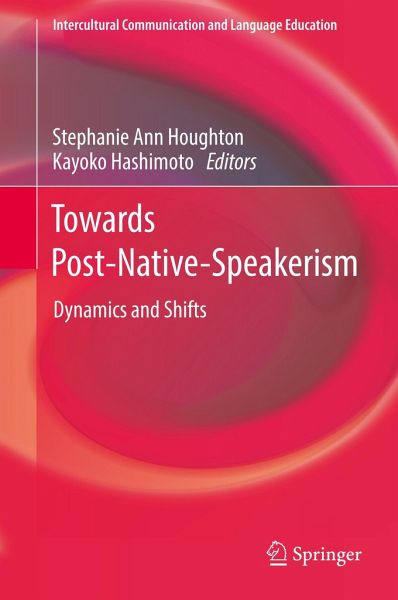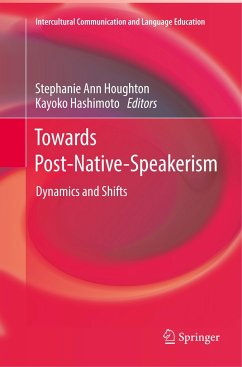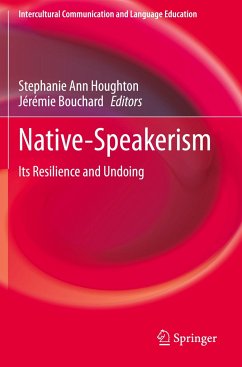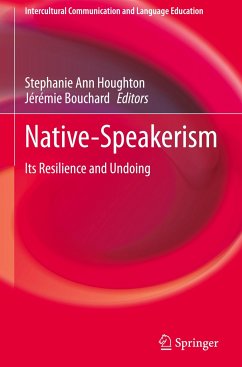
Towards Post-Native-Speakerism
Dynamics and Shifts
Herausgegeben: Houghton, Stephanie Ann; Hashimoto, Kayoko

PAYBACK Punkte
42 °P sammeln!
This book probes for a post-native-speakerist future. It explores the nature of (English and Japanese) native-speakerism in the Japanese context, and possible grounds on which language teachers could be employed if native-speakerism is rejected (i.e., what are the language teachers of the future expected to do, and be, in practice?). It reveals the problems presented by the native-speaker model in foreign language education by exploring individual teacher-researcher narratives related to workplace experience and language-based inclusion/exclusion, as well as Japanese native-speakerism in the t...
This book probes for a post-native-speakerist future. It explores the nature of (English and Japanese) native-speakerism in the Japanese context, and possible grounds on which language teachers could be employed if native-speakerism is rejected (i.e., what are the language teachers of the future expected to do, and be, in practice?). It reveals the problems presented by the native-speaker model in foreign language education by exploring individual teacher-researcher narratives related to workplace experience and language-based inclusion/exclusion, as well as Japanese native-speakerism in the teaching of Japanese as a foreign language. It then seeks solutions to the problems by examining the concept of post-native-speakerism in relation to multilingual perspectives and globalisation generally, with a specific focus on education.














